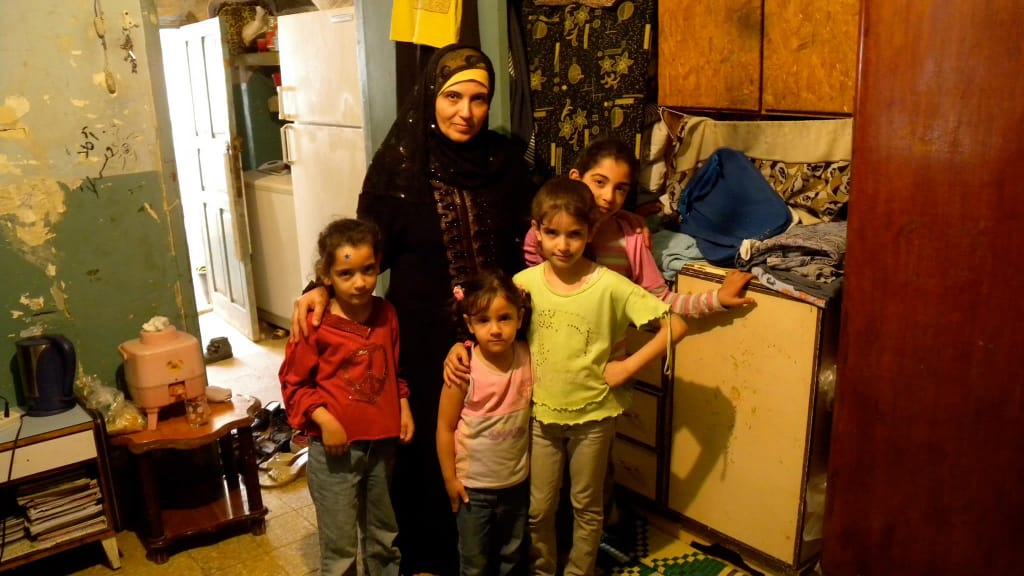Relief Support for Syrian and Palestinian Syrian refugee families

October 1, 2013
This project enhanced the living conditions of 370 Syrian and Palestinian families who had been displaced as a result of the Syrian conflict. Each family received a kit containing vital sanitary and hygiene materials that are often lacking in their gatherings, or informal settlements, in Lebanon. Additionally, project assistants conducted regular health education sessions for around 600 women to help ensure a clean and safe living environment while these families adjusted to new conditions.
The beneficiaries of this project were displaced Syrian and Palestinian women and families from five (5) Palestinian gatherings situated in Lebanon. Each of the 370 families received a hygiene kit containing: soap, sanitary napkins, washing powder, dish-washing detergent, garbage bags, cotton towel, combs, tooth brushes and tooth paste, detergents for floor cleaning, laundry clips, container, shampoo, diapers, anti nappy rash cream. Project coordinators and assistants provided health education and conducted satisfaction assessments to determine the success of the project.
Since early 2011, Syria has suffered from a brutal armed conflict between the Syrian Armed Forces and several factions comprising the Syrian opposition. Over 2 million people had already fled Syria at the time of this project, with most going to Lebanon, Jordan, Iraq, or Turkey. Another 4 million people are internally displaced. Prior to the conflict, roughly 500,000 Palestinians were registered as refugees within Syria due to the longstanding Israel-Palestine conflict. Palestinian refugees in Syria face “extreme vulnerability” as they were already ‘guests’ in that country.
Results
The project successfully distributed Hygiene kits for 400 families and 250 Baby kits to refugee families. Several women commented that the kits were very helpful and that the children and other family members had improved health and living standards.
In addition to distributing kits, PARD also held Health education session, using locally trained educators, for 400 women from three different locations.
Not only the families who received the kits benefited, but also the host community as several refugee families are hosted by local families.
Case Study
Mrs Raj said, “I’m now more aware about the importance of hygiene and cleanliness. My children had diarrhea everyday and I guess this was because I was not taking good hygiene measures at my house due to the emergency situation we are living in, thanks (to) the project we got (a) hygiene kit and hygiene baby kit”.